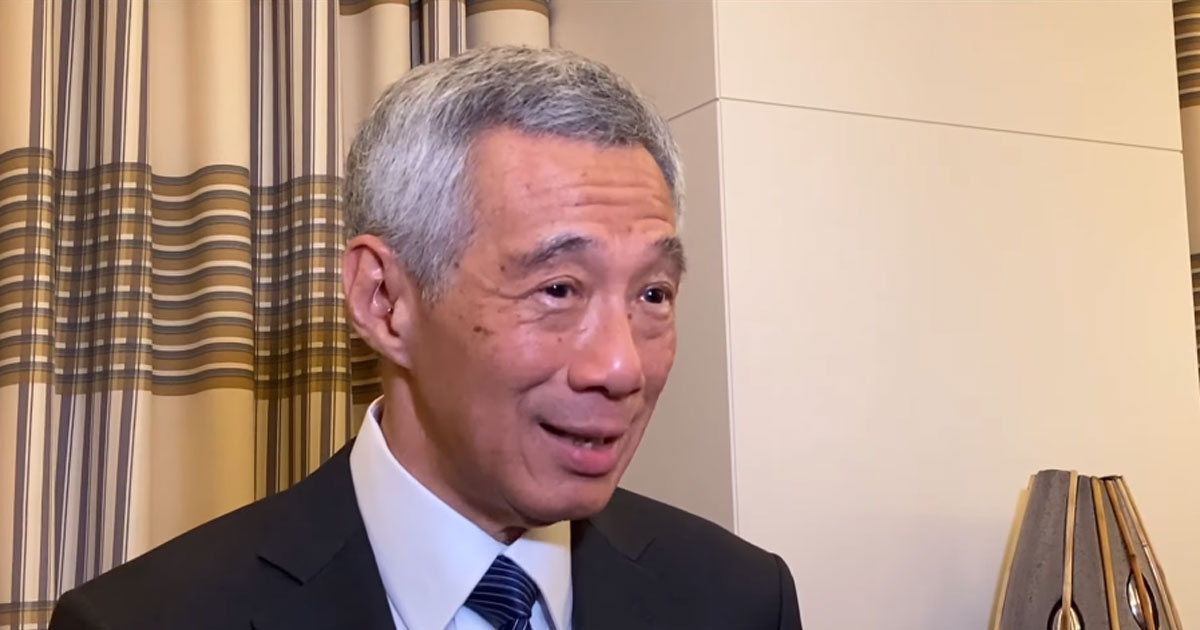Prime Minister Lee Hsien Loong held a dialogue with Nikkei Asian Review editor-at-large Takehiko Koyanagi at the National University of Singapore University Cultural Centre on Thursday, Oct. 10, 2019.
The event was organised to celebrate the 50th anniversary of the founding of the Japan Chamber of Commerce and Industry in Singapore.
The 40-minute panel discussion saw PM Lee and Takehiko touch on several topics which included:
• Singapore's low birth rates
• Singaporeans marrying later
• Singapore learning from Japan to cope with our ageing population
• China changing its trade terms with other countries
Singapore's low birth rates
PM Lee said birth rates in Singapore need to rise first so that the population can grow “a little bit”.
This was so as Singapore is providing opportunities by building new amenities to accommodate more people.
PM Lee said: “We have so many plans for Singapore, in terms of new industries, new businesses, new schools, new opportunities, new towns to live in, new parks — a new society to be built for the next generation."
"And what we need are new people — our children.”
Singaporeans marrying later
However, Singapore's population may start to decline if the birth rates do not improve in four to five years.
PM Lee highlighted that women in Singapore do not marry young, and put their careers first.
This is despite infrastructure put in place to help them cope with parenthood, such as infant care, preschool and daycare amenities that have been built up.
He said: “Our challenge is that one-third of young people do not marry very soon even until their mid-30s.”
Singaporeans also typically do not have children before marriage, he said.
“And if they are working, they have to assess the impact on their careers and whether they can manage their children while at work at the same time," PM Lee added.
“Many mothers do, but some feel that this -- I can well understand -- is not easy to achieve.”
Singapore learning from Japan to cope with ageing population
PM Lee said with around 35,000 Singaporeans born and 35,000 new permanent residents -- of which some 20,000 become citizens -- the population is still growing slightly.
A declining population is what Japan is facing now, where one in three Japanese are seniors, within the next 15 to 20 years.
PM Lee noted that Japan enjoyed a vibrant economy and its stock market was booming more than 25 years ago, but later suffered when its bubble burst.
Japan's economy has since stabilised.
He also said Singapore needs to learn to cater to older people in the workforce and will look to how Japanese companies have adapted their practices in this area.
PM Lee said: "Your companies have been very good at adjusting the jobs, the requirements, even the technology, so that old people can be productive and keep on working. We need to do a lot of that."
China changing its trade terms with other countries
On China, PM Lee said it is necessary to recalibrate its terms on which it is engaging in the global economy.
In 2001, when China entered the World Trade Organisation, its trade was around 4 percent of world trade.
But that figure has risen to about 13 percent now.
PM Lee said: "So the concessions which countries made to them in 2001, today become no longer politically sustainable because the impact is so much greater."
China's trade terms then have to be recalibrated in line with its growth.
This means things like intellectual property "that needs protection for the market, that means the rules which they are able to abide by and commit to", he said.
Top photo via
If you like what you read, follow us on Facebook, Instagram, Twitter and Telegram to get the latest updates.
